- Home
- Michael White
Equinox Page 2
Equinox Read online
Page 2
The body of a young woman was slumped on the back seat. Her arms and legs were splayed, her head pushed back, eyes open, staring, sightless, at the inside of the car roof. She was wearing a simple top and skirt, both blood-soaked. Her flesh was an intense white as though all the blood had been drained from her and her skin seemed to be bleached further by the powerful floodlights inside the tent. The interior of the car was smeared with blood; arterial spray had splashed across the windows and over the cream dash.
The girl looked very young, about Jo's age. She had once been very pretty: her long blonde hair cascaded across the back of the seat, but it was also matted with blood and had stuck to her shoulders in clumps. There was a deep red trough that stretched from ear to ear across her neck and another extending from her throat to her navel. Her ribcage had been opened up and the bones had been snapped back.
Laura stood up. For a long time now she'd believed that she had seen enough crime scenes for nothing ever to affect her, but suddenly she felt a wave of nausea sweep over her and thought she was going to throw up. She took great gulps of air and gradually the sensation ebbed away. She was about to make a dash for the MGB when she heard a voice beside her. 'Good evening.'
She whirled round and saw a young policeman staring at her. She must have looked a mess, she thought incongruously. Her skin felt cold and she knew that the blood had drained from her face. Beads of sweat had broken out on her forehead.
'I, er. .'
'Come this way, please.' The policeman took her by the arm.
Just inside the tent, he called to a plain-clothes officer standing close by. Laura was transfixed by the view she now had into the car a few yards away.
'Well, hello.' The officer looked her up and down. 'And what brings you out on a nasty cold night like this?'
She was about to respond when Philip looked over, lowered his camera and sighed heavily. 'Shit,' she heard him mutter.
'Inspector Monroe,' Philip made sure he did not catch Laura's eye. 'This is a friend of mine, Laura Niven.'
John Monroe was a tall, broad-shouldered beefy man wearing an ill-fitting brown suit and an off-mustard tie that had seen better days. In his early forties, he was bald except for patches of dark hair shaved to a mere stubble either side of his head. He had once been a promising sprinter but had let himself get out of shape. He had a large head sitting on a thick short neck. His most remarkable feature, and something that gave him the merest hint of physical attractiveness, was a pair of large black eyes that suggested both intelligence and grit but no hint of softness or humour. 'Ah, a friend, Mr Bainbridge.' Monroe's voice was a classic baritone darkened with habitual sarcasm.
'Yes, and I apologise. I asked-'
'Oh, for God's sake, Philip,' Laura snapped suddenly. 'I can speak, you know, and I'm not a child.' She turned to Monroe who for a second looked a little startled. 'Officer. .'
'Detective Chief Inspector. .'
'Detective Chief Inspector… Monroe? I'm sorry. Philip told me to stay put. I was. .'
'Curious?'
'Yes, I guess I was. .'
'You realise now, of course, Ms Niven, that this is a murder scene, and a particularly nasty one at that. Members of the public-'
'Detective Chief Inspector, I can vouch for Laura,' Philip persisted. 'I think she knows she shouldn't have, but-'
He was cut short as a white-suited figure near the car called over. 'Chief Inspector? I think you should see this.'
Monroe spun round and took two paces towards the car. Philip glared at Laura and was about to say something when, to his disgust, she strode after Monroe.
'It was just inside the wound,' the Forensics officer said. Between, his gloved thumb and index finger he held up a coin daubed with blood.
Monroe took it in his gloved hand and held it up to the light. Laura managed to get a good look at it before Monroe scowled at her and she took a step back. It was the size of a quarter, and the side facing them depicted a beautifully crafted scene with five naked female figures holding a bowl aloft.
'It looks to me like solid gold,' the Forensics officer said. 'But I'll have to confirm that back at the lab.' Monroe placed the coin gingerly into a plastic bag held open for him. Then, turning, he saw Laura only a few feet away. He gave Philip a sour look.
'Mr Bainbridge,' he said and ran a finger between his shirt collar and the skin of his neck. 'If you have finished here, would you be so kind as to escort your lady friend back to your car, and go home?'
'Well, good night to you too, Detective Chef Inspector,' Laura retorted as Monroe turned on his heel. 'Nice meeting you.'
Chapter 3
'What the bloody hell do you think you were doing?' Philip yelled. He was more angry than she could ever remember him being. 'This is my job, Laura. Stunts like that could get me fired.'
'Oh, for God's sake, Philip, calm down. I was just peeking through the tent flap. That cop made things far worse by bringing me inside, didn't he?'
Philip turned to look at her for a moment before glaring back at the road. 'You know, sometimes. .'
'What?'
'A crime scene isn't open to the public unless the police say it is. You damn well know that, Laura.'
'OK, OK. I'm sorry. I would have apologised -1 didn't get a chance.'
'You're lucky that Monroe was preoccupied.'
They fell silent for a moment.
'So, what do you make of it?'
'I'm not at liberty to talk about it, Laura.'
'Oh, come on, Philip — it's me, remember?'
He stared at the road and Laura could see the tension in his jawline.
'So that's it, ha? You're clamming up on me, just because I broke the rules?'
He continued to ignore her.
'Typical,' she huffed.
Suddenly Philip hit the brake and pulled the car off the road onto the verge. Leaving the engine to idle, he turned in his seat to face Laura.
'Look,' he said, unable to keep the anger from his voice. 'Laura, as much as I love you, sometimes you can be the most annoying, arrogant bitch.'
She made to protest.
'No, you listen to me for once.' Philip raised his voice a notch. 'This is my life here. You can swan off to New York tomorrow and get back to your books and your own private little world. I have to work with these people several days a week. It's my bread and butter. But you know, you never were big on respect, were you?'
'What?' Laura snapped.
'You've always done just what you pleased. You've come and gone as you liked.' He stopped, suddenly regretting that he had said so much and knowing that a part of his anger had nothing to do with Laura's performance this evening and a lot to do with the past. There was a long silence.
'I don't really think that's fair,' Laura said finally.
'You make it sound like a one-way street, Philip. If you're talking about Jo, about what we've chosen to do, you were every bit as involved in those decisions.'
'Was I?' Philip replied, his voice a little calmer. 'Was I really? Would you have stayed in England with her if I had asked you to? I don't think so.'
Laura didn't know how to respond. They had been kids, it was as simple as that. She had come from a broken home — her parents divorced, Jane, her B-movie actress mother, then living post-rehab in a commune in San Luis Obispo, her father a top-notch lawyer in LA. Laura had won a Rhodes Scholarship to Oxford to read history of art at Magdalen. She had been ambitious, a high-flyer.
Then she had fallen pregnant: morning sickness just before her Finals. While the others had been swigging champagne from the bottle after the last exam, she had gone back to her room to cry and vomit some more. Her parents had come over for Laura's graduation and she had managed to tell her mother. Jane Niven had taken it stoically and had never tried to push her daughter in any one direction. She had struggled with her own demons for years and a daughter pregnant at twenty-one was no big deal. Laura wondered now if it would have been better if she had been guided into a decisio
n.
Philip had tried to be grown-up about it, but he had been little more than a child himself. He had graduated a year earlier, but he was living in digs, scratching a living photographing weddings and babies and dreaming of his own exhibitions that in reality lay more than a decade ahead. He was broke, immature and had no idea what to do. After the birth, Laura had contemplated staying in England and getting a job somewhere. Maybe she and Philip could have worked something out, shared their lives, but something had told her that it couldn't possibly succeed. Before their baby daughter was six months old Laura had taken the decision to move back to America with her.
Laura and Philip had remained friends, though, and Philip had come over to the States whenever he could. When Laura landed a job at the New York Post as a crime reporter she began to earn a little, and she was able to make a few trips over to England with Jo. Three years later she had married. Her husband, Rod Newcombe, had been a determined and ambitious documentary-maker and they had forged great plans to work together on a true-life crime series. Rod had been.good for Jo, who had grown to adore him, and for a short time it was happy families. But then, in 1994, Rod had headed for Rwanda and had come home in a body bag. Jo had been seven and could not understand what had happened to her stepfather, and how all that remained of him now was an image on a videotape.
It had also come at a crucial time for Laura. She had just moved into crime reporting and hadn't yet learned to cope with the squalor and the agonies that she was forced to witness each day. After being sent to cover a murder in which a prostitute had bitten off a customer's penis before shooting herself in the face, Laura had resorted to antidepressants and weekly therapy sessions.
That phase had passed and Laura had become hardened to the grim realities of what she did to pay the bills. But so many times she regretted the choices she had made; and whenever she met up with Philip again she realised how things could have gone in other directions, how much she really loved him and how different her life might have been. But each time she did this she was also conscious that their lives were moving apart, that it was getting harder, not easier to ever consider an alternative reality in which the three of them — Jo, Philip, herself — could be together.
For an instant, what she had said and done tonight seemed strangely symptomatic. Laura felt overwhelmingly sad and it was all she could do to stop the tears. She didn't know the answer to Philip's question. Would she have done anything different?
Taking a deep breath, she said. 'I'm sorry, Philip. I was being unreasonable.'
Philip looked at her for a few seconds. She hadn't been able to answer his question, but he could understand that. He had no answers either. He suspected that sometimes Laura wished that things had been different. He knew he did, more often than he cared to admit, even to himself. And when he did dwell on the subject, an insistent voice would end the internal conversation with the logical announcement that it was all too late now and what had happened had happened.
He smiled suddenly. 'Oh well, I'm sure Monroe will get over it. He's a good cop but a jumped-up bastard.'
Laura leaned over and kissed him on the cheek as he put the car into gear and pulled back onto the road.
'So, you going to tell me what you know?'
Philip let out a heavy sigh, but the anger had evaporated. 'God, woman, you don't give up, do you?'
'Nope,' Laura replied, with a smile. 'Not usually.'
'Well, to be honest, I don't know much more than you do. She was a young kid about twenty, driving back from a friend's house. Died sometime between seven and eight-thirty this evening. Discovered by a guy walking his dog. Nearest house a couple of hundred yards away. No one heard anything or saw anything.'
'But the wounds. .' Laura began, her voice trailing off. 'Nearly fifteen years of crime reporting back home and I never saw anything like that.' 'No, not nice.'
'I'm used to "not nice": tricks cutting the tongues out of hookers, heads blown apart by semi-automatics — that kind of thing. But that girl had her heart taken out, for Christ's sake. Surgically removed, carefully done.'
'I know, I photographed it.'
'Strikes me as way beyond the range of your average murder, Philip. More … I don't know. . ritualistic, I guess.'
'Yes, maybe,' Philip replied, staring at the road ahead. 'I'm not a cop.'
They fell silent for a while, then Laura said. 'And that coin. What the hell was that about?'
'Why such interest?' Philip retorted impatiently.
'Search me. I guess I'm still an old crime hack at heart.'
Chapter 4
The wind rattled the windows in Laura's room in Philip's house and she drifted in and out of a disturbed sleep, dreaming the same thing she always dreamed on nights like this one: a dream that was not a dream, more a distorted memory.
It began with her flying over Los Angeles. It was night and she was going to visit her parents at their respective California homes soon after she had moved back to New York. They were over the outer suburbs before the pilot even announced that the plane was beginning its descent. Ten minutes later she was over the city proper and the plane was banking slowly to the north, moving up parallel to the coast. She could see the city now, all lit up, like a galaxy, like one of those incredible images from the Hubble telescope. And each car was a star, and each house a little solar system, a solar system of lights. The pollution in the air made them twinkle and fray.
Laura had taken this flight before of course, maybe a dozen times, but never at night, and it was just amazing. And then she saw it. She was staring at the lights, this show of defiance, humankind sticking up a finger to the gods, pure chutzpah. It reared up, the 1-405 with its million automobiles. But from three thousand feet up it looked nothing like a road. She could see no crash barriers, no tarmac, no borders, just a black strip between the lights. And the dots of sodium light — they could not be cars, could they? They had become disembodied, mere headlights moving by their own volition, just lights. It was then that it struck her, the whole view, the bigger picture, the long strips containing all those lights, all moving in strict columns, six lanes either way, dot after dot after dot, all moving together. For a moment back there they had been metal containers carrying Stan or Jim or Tabitha, taking them home to little Jimmy, to Dorothy and Delores: they had been just lights, they had been bubbles of humanity, cocoons with music spilling from the radio. They had been, in her mind at least, bundles of thought, packets of longings, desires and memories, worries and frailties. But then that moment had passed and now the dots had become something else. The freeway had become a blood vessel and the dots of light, the disembodied lights had become corpuscles, the red cells of the brake lights and the white of the headlights streaming up and down along an artery of a darkened body that must be lying down there somewhere, invisible in the glare.
She jolted awake and sat up. Squinting at the clock, she could see that the time was 5.32 a.m. It was blowing a gale outside. Then she remembered that Jo had been out when they had returned home just before midnight. She hadn't heard her come in.
Laura was now wide awake and the images of the pale body she had seen in the car came rushing back. There had been blood and gore all over the inside of the car. Those things she was used to, but then she remembered the girl's chest splayed — the view she'd had when she'd stood close to the car, next to Monroe. The ribs looked like they had been cut through with a specialist's tool, something that a surgeon would use. The cut had been made with absolute precision, no effort wasted. Then she could see again the severed arteries and veins, the sliced edges of the heart's plumbing. They too had been snipped precisely, expertly.
She laid her head back on the pillow, refusing to give up on sleep, trying to rid herself of the images and to focus on her own life. Her suitcases were packed and stood at the foot of the bed. She was leaving for the airport at 10 a.m. By tomorrow night she would be back in Greenwich Village, back in her apartment trying to revive her dead plants and searching
for a way into the new book. The new book, God, that was going nowhere, she recalled suddenly, and with this recollection sleep slipped further away.
Laura tried to grasp the plot that she had worked through, to disappear into a fantasy world. It was a trick she had used before and it often worked against insomnia, but tonight nothing seemed to take her away from the immediate moment.
Then she was back at the crime scene again. . Monroe picking up that coin between latexed fingers. It had glistened in the illumination from the floodlights, glistened except where the blood had caked and dried. She had never seen anything quite like it before. It looked extremely old. And to her untrained eye it certainly appeared to be gold, old gold. Why, she thought, would anyone leave such a thing behind? Apart from the fact that it was giving away clues, it must have been worth a fortune.
Philip had been quite right to be so furious with her, but Laura knew there was much more to it. There could be no coincidence in the fact that his outburst had happened the night before she was due to return home to New York. It was the old resentments rising again. He felt that she had deserted him all those years ago, even though they had both known — and now knew definitely — that they could never have coped. These past three weeks had been wonderful, and she could admit that sometimes she had found herself slipping into a fantasy in which they really were a family, that she lived here in this seventeenth-century house in a village close to Oxford, that Jo had grown up with them, together. The fantasy felt nice.
Laura had become so wrapped up in these thoughts that at first she did not hear the phone ring in the hall downstairs. Then came the sound of Philip's door opening and his heavy tread as he stumbled along the corridor and down the steep, winding staircase. She could hear him speaking, but couldn't make out what he was saying. Then the receiver was replaced and she heard him take the stairs back up. Now he was moving fast. A few moments later there came an urgent knock on her door and it swung inwards.

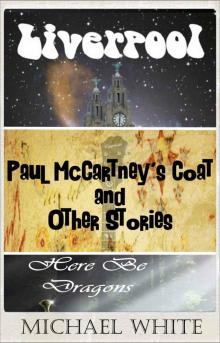 Paul McCartney's Coat
Paul McCartney's Coat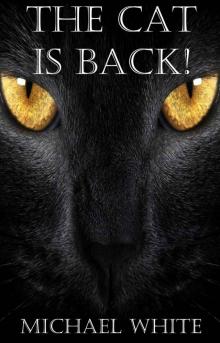 The Cat Is Back!
The Cat Is Back!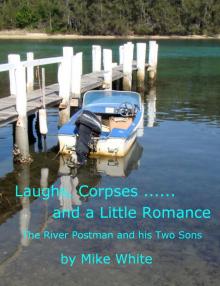 Laughs, Corpses... and a Little Romance
Laughs, Corpses... and a Little Romance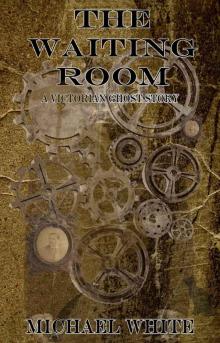 The Waiting Room
The Waiting Room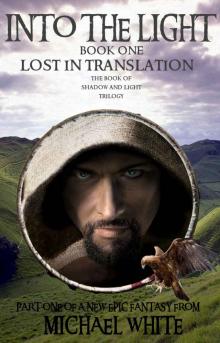 Into the Light- Lost in Translation
Into the Light- Lost in Translation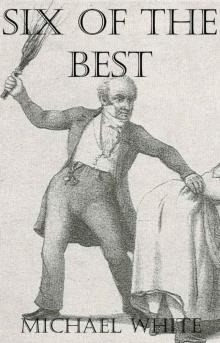 Six of the Best
Six of the Best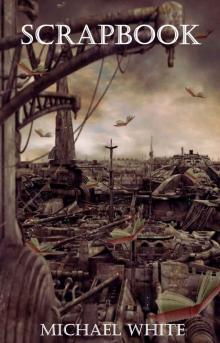 Scrapbook
Scrapbook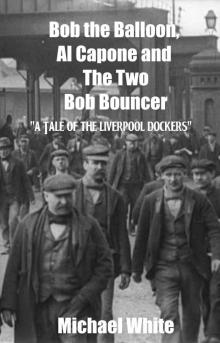 Bob the Balloon, Al Capone and the Two Bob Bouncer
Bob the Balloon, Al Capone and the Two Bob Bouncer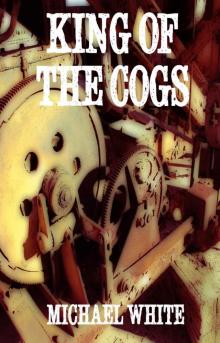 The King of the Cogs
The King of the Cogs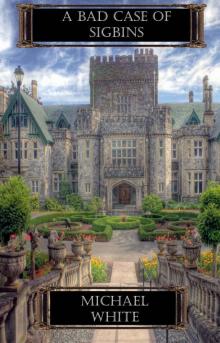 A Bad Case of Sigbins
A Bad Case of Sigbins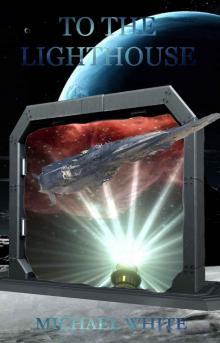 To the Lighthouse
To the Lighthouse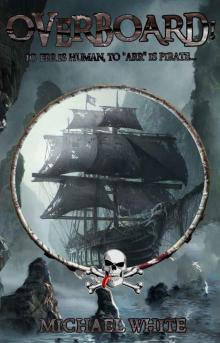 Overboard!
Overboard!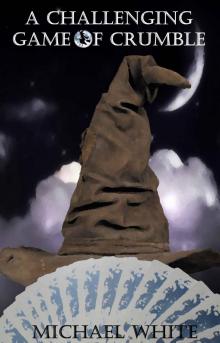 A Challenging Game of Crumble
A Challenging Game of Crumble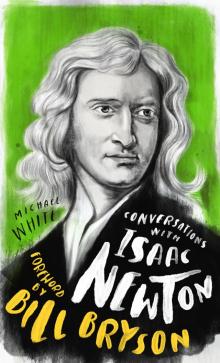 Conversations With Isaac Newton
Conversations With Isaac Newton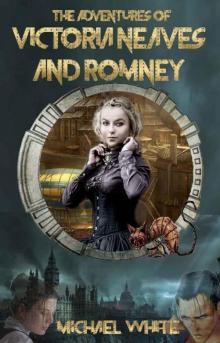 The Complete Adventures of Victoria Neaves & Romney
The Complete Adventures of Victoria Neaves & Romney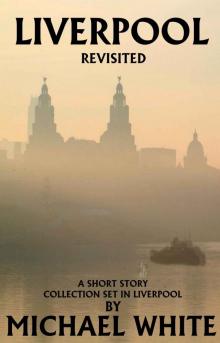 Liverpool Revisited
Liverpool Revisited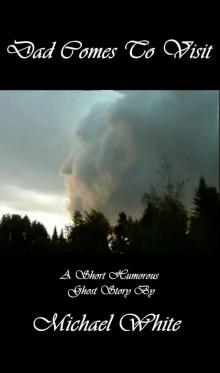 Dad Comes to Visit
Dad Comes to Visit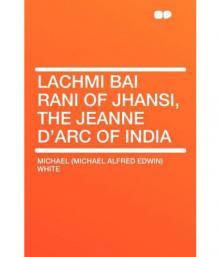 Lachmi Bai, Rani of Jhansi: The Jeanne D'Arc of India
Lachmi Bai, Rani of Jhansi: The Jeanne D'Arc of India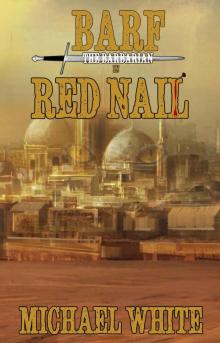 Barf the Barbarian in Red Nail (The Chronicles of Barf the Barbarian Book 2)
Barf the Barbarian in Red Nail (The Chronicles of Barf the Barbarian Book 2)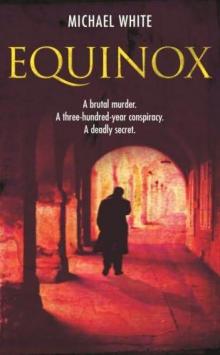 Equinox
Equinox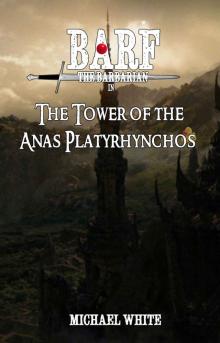 Barf the Barbarian in The Tower of the Anas Platyrhynchos (The Chronicles of Barf the Barbarian Book 1)
Barf the Barbarian in The Tower of the Anas Platyrhynchos (The Chronicles of Barf the Barbarian Book 1)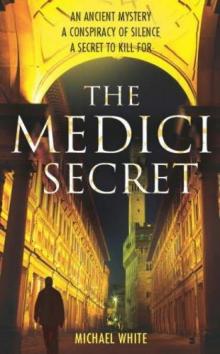 The Medici secret
The Medici secret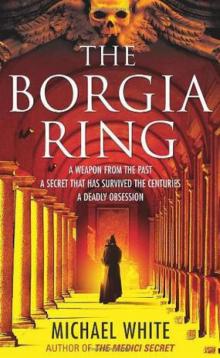 Jack Pendragon - 02 - Borgia Ring
Jack Pendragon - 02 - Borgia Ring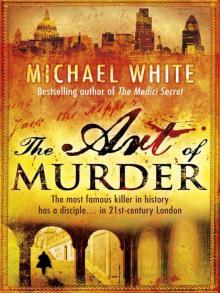 The Art of Murder jp-3
The Art of Murder jp-3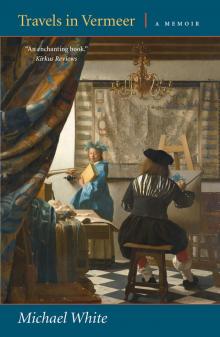 Travels in Vermeer
Travels in Vermeer